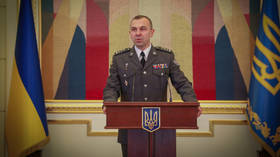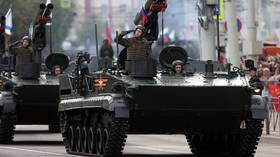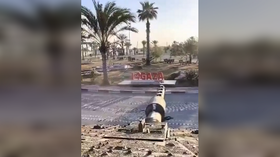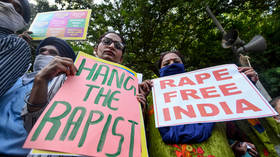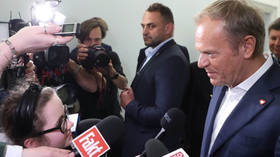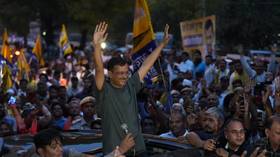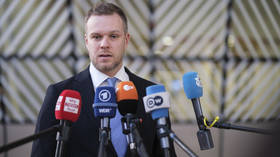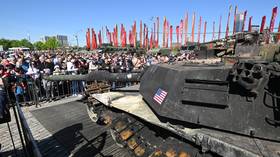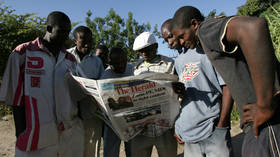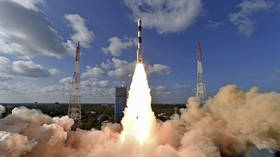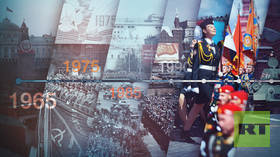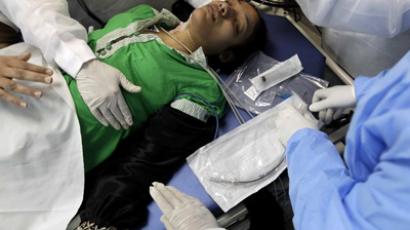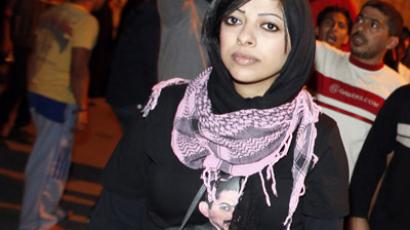Bahrain police fire tear gas, grenades on protesters during 'Martyrs Day' rally
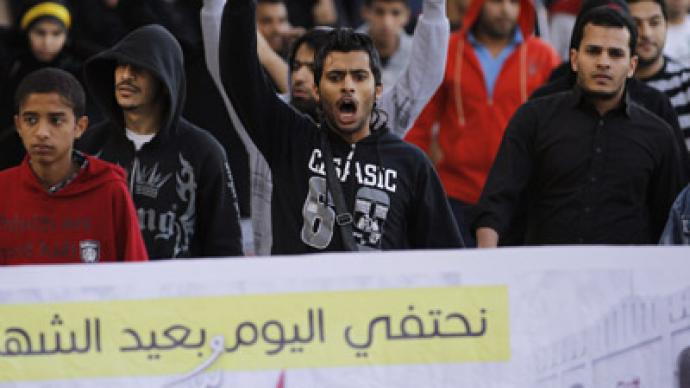
Bahraini security forces have fired tear gas and stun grenades as crowds of protesters gathered in the capital Manama. Some people were injured and dozens reportedly arrested during the massive 'Bahrain’s Martyrs Day' demonstration.
Some locals have reported witnessing extensive use of teargas, pellet shotguns and sound bombs that have caused severe and critical injuries to protesters.Groups of protesters gathered, chanting slogans in the narrow streets of Manama's traditional market district. Activists also blocked public streets in preparation for a mass demonstration to mark 'Bahrain’s Martyrs Day,' an annual commemoration for two protesters killed in 1994.Local witnesses reported that police made at least 25 arrests, including women.
I can see security forces spraying pepper spray on female protesters faces as they mock them/laugh #bahrain#manama”
— S.YousifAlmuhafda (@SAIDYOUSIF) December 17, 2012
Denying entry for foreign reporters
In an apparent effort to get the spiraling protest movement under control, the Bahraini government is denying entry into the country for foreign reporters. New York Times columnist Nick Kristof was denied an entry visa into Bahrain earlier on Monday.In his Twitter he complained that “by barring most journalists, Bahrain gets away with brutally crushing protests – using US military equipment,” while the “US pretends not to notice.”
Colin Cavell, a former lecturer at the University of Bahrain and the author of Exporting 'Made in America' Democracy, told RT that by barring foreign journalist from visiting the country, the Bahraini government is trying to hide the true scale of repressions against the opposition.“The government is trying to hide the fact that they are a military hunter they are no longer a legitimate government, three quarters of the population are opposed to them and the population is no longer scared of them,” Cavell said. “The population wants the Al-Khalifa to leave the country, they want democracy, they are tired of 230 years of dictatorship, they want the monarchy to leave, they want a say in their lives.”
Denying me entry is a reminder that our ally #Bahrain doesn't want witnesses to its nightly repression in Shia villages.
— Nicholas Kristof (@NickKristof) December 17, 2012
Some locals have reported witnessing extensive use of teargas, pellet shotguns and sound bombs that have caused severe and critical injuries to protesters.Groups of protesters gathered and chanted slogans in the narrow streets of Manama's traditional market district. Activists also blocked public streets in preparation for a mass demonstration to mark 'Bahrain’s Martyrs Day,' an annual commemoration for two protesters killed in 1994.Local witnesses reported that police made several arrests, including women.
Since 1994, December 17 has been marked by the people as 'Bahrain’s Martyrs Day,' following the extrajudicial killing of two Bahrainis during the 90s uprising.Local authorities have set up checkpoints and expanded patrols across Manama ahead of the rallies Monday.Bahrain’s security forces have been repeatedly condemned for heavy-handed crackdowns on protesters. Though police regularly use violence to disperse crowds of protesters, Bahrainis have continued to protest, demanding greater rights and freedoms. Nearly 60 people have died in the unrest since the pro-democracy protests, led by the country's Shia Muslim majority, erupted in February 2011.


